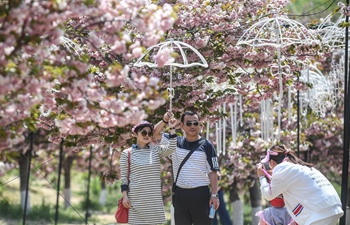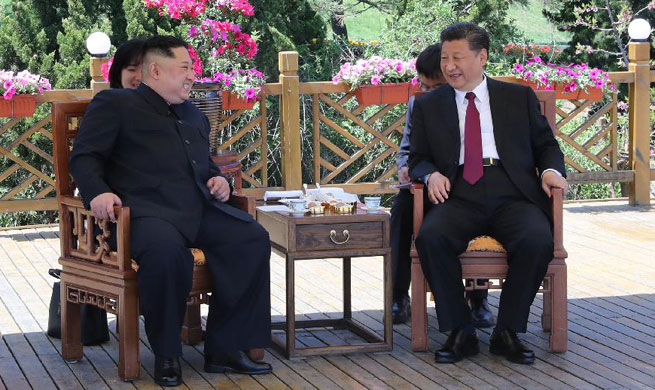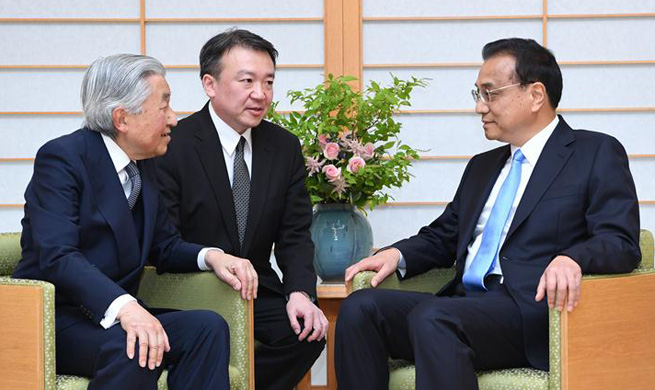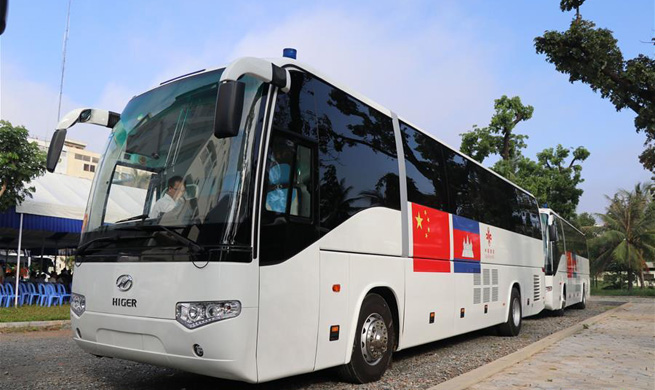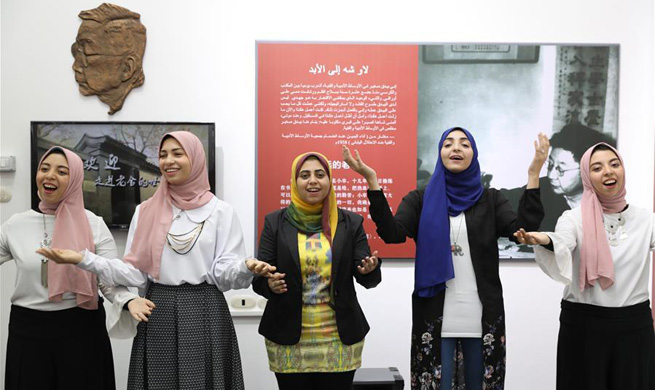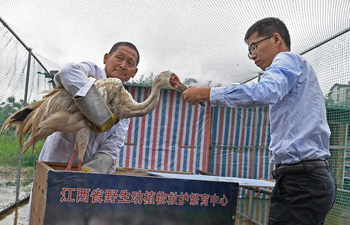MONTEVIDEO, May 10 (Xinhua) -- A Confucius Institute recently opened in Uruguay's capital Montevideo, fulfilling a dream for promoters of Chinese culture and locals keen to learn more about China.
The institute, a worldwide network that offers a window to Chinese culture through Mandarin (standard Chinese) language classes and other types of courses, opened in April, thanks to an agreement between Uruguay's University of the Republic (Udelar) and Qingdao University in eastern China's Shandong Province.
Retired Chinese architect and teacher Cheung-Koon Yim, who emigrated to Uruguay in 1953, was tapped to run the institute, which aims to meet the rising demand for Chinese studies from students, government officials and the business sector.
For Yim, 81, who married and obtained a university degree in Uruguay, the institute gives him an opportunity to serve both China and Uruguay by doing his part to strengthen the bonds between his native and adopted countries.
"The Uruguayans opened the doors to me without placing any conditions," Yim told Xinhua in an interview, adding that it's a way "to give back for all that Uruguay has given me in the past 65 years."
Regarding his new role as director of the institute, Yim said it was important to keep in mind that learning a new language necessarily involves understanding the society that speaks that language.
"We have to teach the Chinese language with an eye to cultural transference. If the student doesn't have the slightest understanding of the way of life in China or its 5,000 years of tradition, its way of thinking or its world view, then it is very difficult to learn the language," he said.
During his four decades of teaching architecture at Udelar, Yim often touched on "Chinese philosophical concepts of habitat, of how to position yourself in the universe."
His uncle, with whom he emigrated, was an avid Sinologist who helped him put together courses for the diffusion of Chinese culture.
As a center of higher learning, "it is Udelar's obligation to open up to societies and ways of thinking, to cultures that are different from our own," said Yim.
"The western world often forgets that there is another half of the world, and now that the other half of the world is growing so rapidly, we remember that it exists," he added.
"But for us it's not just that, it's not just an interest in today's China, because it buys our meat and soy, it's much more than that," said Yim.
The institute's opening this year coincides with the 30th anniversary of diplomatic ties between China and Uruguay, which is being celebrated throughout the year.
Montevideo and Qingdao are sister cities, prompting the collaboration between their two universities.
Qingdao University is providing teaching staff and materials for the institute, while Udelar is providing the venue and logistics.
Before opening up the institute, the university offered Mandarin courses at its foreign-language studies center, but classes at the institute were quickly filled up, reflecting the high level of interest.
The institute has already signed or is negotiating agreements to train officials at the National Meat Institute, the defense ministry, and the foreign affairs ministry, as well as other regional agencies.
"Evidently, ties are increasingly growing at the trade and cultural level, and everyone wants to study Mandarin," said Yim, adding in mock exasperation "we can't attend to everyone!"
In an effort to meet demand, the next step will be to offer institute courses at Udelar's regional campuses in other parts of the country.
Through the Confucius Institute, "we are coming to build bridges," said Yim.





